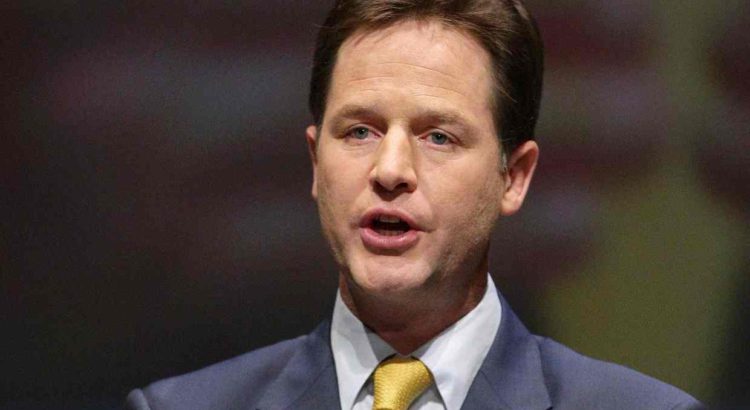Nick Clegg says poorer pupils are facing a ‘cocktail of disadvantage’.
Resumen: El informe del comité de expertos de la Fundación Social de Mercado del Reino Unido encontró en una reciente nvestigación que las escuelas más necesitadas de Inglaterra lucharon para retener a los maestros experimentados, cuya ausencia en ese tipo de escuelas impiden a que los alumnos que más los necesitan, obtengan menos resultados en términos de calidad de su formación. «Esto proporciona una explicación de por qué la desigualdad educativa en Inglaterra persiste.» Sostiene el informe.
Disadvantaged pupils are being held back by high levels of teacher turnover, and schools should offer mentoring and extra pay to keep staff, according to a new report looking at the causes of educational underachievement.
The report by the Social Market Foundation thinktank found that the most deprived schools in England struggled to retain experienced teachers, leading to worse outcomes for pupils who most needed the help.
“We find stark inequalities in access to the highest quality teachers resulting in poorer pupils being taught by poorer quality teachers,” the report argues. “This provides an explanation as to why educational inequality in England persists.”
Nick Clegg, the former deputy prime minister and chair of the SMF’s inequality commission, said in launching the report: “This new research suggests that poor pupils are facing a cocktail of disadvantage – they’re more likely to have unqualified teachers, non-specialist teachers, less experienced teachers, and to have a high turnover of teachers.
“Many new teachers, to their credit, choose to teach in schools in poorer areas. Improving their pay and the support they receive could mean they are more likely to stay in those schools as they become more experienced and effective.”
Teachers in poorer schools are more likely to leave or move
The research found that the 20% of schools with the highest proportion of pupils eligible for free school meals (FSM) were more likely to have to recruit younger, less experienced teachers.
But as they gained experience the teachers were also more likely to move to other schools or leave teaching all together, increasing the rate of staff turnover and meaning they were replaced with more young teachers.
Using Department for Education statistics from 2013, the research found that teachers at secondary schools in the worst-off areas were 70% more likely to leave than those in the top 20% of best-off schools.
“It appears that many new, inexperienced teachers are getting jobs in deprived schools but are not getting the support they need, are struggling to cope and then are leaving as a result. This helps explain why poor students are also exposed to higher teacher turnover,” the report says.
“The way the system currently operates means that higher-deprivation schools are much more likely to get poor quality teachers.”
In order to break the cycle, the report suggests offering higher pay and support to keep young teachers. Using workforce statistics, it suggests allowing £530 extra a year for primary school teachers and nearly £1,300 for secondary school teachers.
Related:Academy trusts accused of failing disadvantaged pupils
But higher pay alone is “clearly not sufficient” to retain staff, it says. “It is hard to know how large the pay incentives would need to be to attract experienced teachers back into high-FSM schools,” the authors note. Instead, mentoring and support would help retain and improve existing teachers, while publishing school retention rates would encourage schools to do more to keep staff.
Looming teacher shortages were likely to make matters worse for struggling schools, according to Rebecca Allen, the director of Education Datalab and one of the authors.
“Teacher recruitment and retention has become much more difficult since the period we studied here,” said Allen.
“Given that more disadvantaged schools were already doing worse than more advantaged schools in recruiting to longstanding shortage subjects such as physics and maths, it seems most likely that more widespread shortages will disproportionately affect them.”
Fuente: Pay more so teachers stay at disadvantaged schools, says thinktank
Photograph: Dave Thompson/PA







 Users Today : 14
Users Today : 14 Total Users : 35460367
Total Users : 35460367 Views Today : 20
Views Today : 20 Total views : 3419120
Total views : 3419120